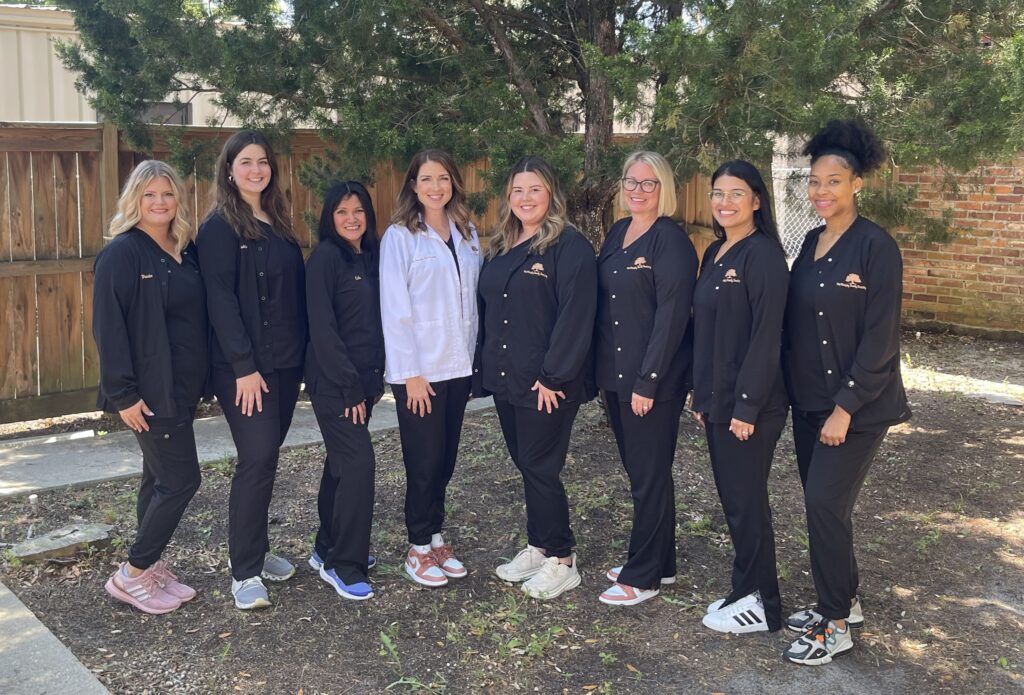A root canal treatment is likely one of the most common dental operations done today. Contrary to popular belief, one does not “get a root canal,” so to speak, rather, one receives a root control treatment on the root canal area of their tooth. Let’s take a look at what the root canal is, what root canal treatments and therapies are, and what occurs in a person’s life that might cause some patients to need such treatments.
The online newsletter, Medical News Today defines the root canal as:
“A ‘root canal’ is not a treatment, but part of a tooth. It is the hollow section of a tooth that contains the nerve tissue, blood vessels, and other cells, also known as the pulp. A tooth consists of a crown and roots. The crown is mainly above the gum, while the roots are below it. The roots attach the tooth to the jawbone.”
The American Association of Endodontists defines root control treatments as:
“When you undergo a root canal (treatment) or other endodontic treatment, the inflamed or infected pulp is removed and the inside of the tooth is carefully cleaned and disinfected, then filled and sealed with a rubber-like material called gutta-percha. Afterwards, the tooth is restored with a crown or filling for protection and will continue to function like any other tooth.”
As we can see, receiving a root canal procedure is not this terrible, daunting, painful, and drawn out procedure as it has been stigmatized to be. Perhaps at one point, a root canal procedure was unpleasant and uncomfortable, but modern endodontic technology has allowed us to make this process smooth and carefree.
Why Root Canal Therapy?
Root canal therapy (or root canal treatments as they are also called) are needed when the nerve of the tooth itself is affected by decay or infection, infecting the pulp around it, and causing pain and discomfort throughout the area. Infections and decay within one’s root canal usually occur due to a lack of proper and frequent dental hygiene. However, other factors can sometimes cause infection, like an injury to the tooth, excessive grinding, a crack or chip in the tooth, etc.
When attempting to take the best care possible of your family’s teeth, mouth, and gums, here are some signs to watch out for:
- If an area of the teeth or gums is especially sensitive to hot or cold, that could be a sign of an infection in the root canal.
- A severe toothache or jaw ache is also a sign of an infected or decaying root canal.
- Sometimes, swelling and tenderness can be an indicator of an infected root canal.
If you or your spouse or one of your children has any of the above symptoms, if they are experiencing discomfort, swelling, throbbing pain, toothaches or jaw aches, these are all signs that root canal therapy might be needed.
The important thing to remember is to pay attention to any and all symptoms and to get the family in for regular checkups at your family’s dental office. Most of the time, root canal issues can be prevented with regular checkups, frequent cleaning, and routine oral hygiene. But in the event that those routes fail us, receiving regular checkups at your local family dentist will still allow for an infected root canal to be apprehended quickly, allowing for minimal invasion and maintenance in addressing the problem.
McMurphy Family Dentistry – The First Choice in Root Canal Treatments
Here at McMurphy Family Dentistry, we have placed it as our top goal to empower our patients through education of best dental practices while also providing excellent quality care for our patients. We make it a priority to focus on using preventative dental measures to help our patients address dental concerns before they become dental problems. Like many other areas of health and wellness, prevention is preferred over treatment, and we try to help our patients avoid costly procedures whenever possible.
However, sometimes a root canal treatment is necessary, even if our patient has been taking proper precautions. We’ll do everything we can to prevent the need for one, but if the need does arise, we are the first choice in root canal services. Call our offices today to schedule an appointment at (228)-207-1548. Or if you want to stop by and receive a tour of our facilities, we can be easily located at 2318 Pass Rd #9, in Biloxi, Mississippi, zip code 39531.
Sources:










